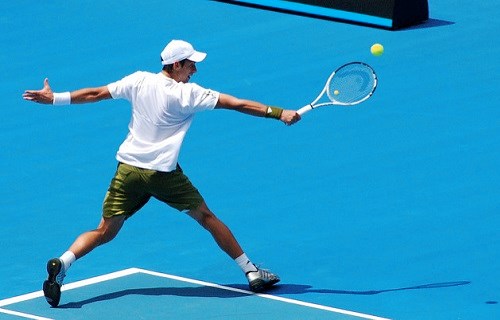Tennis to review its anti-corruption efforts
Based on leaked documents and analysis of the data from 26,000 tennis matches, Buzzfeed and BBC last week published a joint investigation alleging that a group of 16 of tennis’ top 50 players had been repeatedly flagged to the sport’s policing unit, the Tennis Integrity Unit (TIU), as involved in matches that showed suspicious betting patterns without the TIU acting on it.
In a statement released shortly after the Buzzfeed/BBC report was published, tennis’ governing bodies denied all allegations that match-fixing evidence had not been acted upon.
”The Tennis Integrity Unit and the tennis authorities absolutely reject any suggestion that evidence of match fixing has been suppressed for any reason,” the statement said while also highlighting the work done by the unit:
“Since 2010, TIU-instigated anti-corruption investigations have resulted in 18 successful disciplinary cases being brought forward,” it said.
Nevertheless, the tennis authorities today announced that an independent review panel, headed by sports lawyer Adam Lewis QC, will review the effectiveness of the tennis’ anti-corruption program and bring forward recommendations for change.
Some of the specific issues to be dealt with in the report are listed in the new statement:
- “How the TIU can be more transparent without compromising the TIU’s need for investigative confidentiality
- Additional resources for the TIU both within the unit and at tournaments
- Structural and/or governance changes that enhance the independence of the TIU
- How to extend the scope and reach of the tennis integrity education program.”
‘Cone of silence’
Both the reporters behind the Buzzfeed/BBC report as well as other observers have noted that the tennis authorities work in a manner that makes it hard for the public to know what is actually being looked into and what is not.
“The process by which tennis investigates alleged match-fixing is so secretive that it’s impossible to judge the accuracy of the authorities’ response,” said Carl Bialik in an article on FiveThirtyEight.com.
And while acknowledging that the TIU works on a limited budget of two million dollars a year, Christopher Clarey, in an article in the New York Times, argued that the TIU should release more information about their investigations.
“…[T]he cone of silence is still too thick. […] in this time of legitimate skepticism about the integrity of sports federations and officials, the integrity unit should regularly publish some general figures to give a better sense of the scope of its activities.”
According to today’s announcement, tennis is now prepared to look into how corruption is dealt with by the sport.
"The environment for all major sports, including tennis, has changed dramatically over the past eight years and combined with issues raised in the media, we believe now is the right time to review how we continue to fight corruption in the game,” says the statement signed by seven tennis authority chairmen, who also call for cooperation between policing agencies, governments and sport.
"Given the seriousness of the issue, we call on all governments worldwide to make match fixing a distinct criminal offence, resourced by national crime fighting agencies working in cooperation with sports integrity boards and other relevant stakeholders," concludes the announcement.






